14 de octubre 2021

Children of Exile: The Births “Sowing Hope” in the Camp of Nicaraguan Farmers

PUBLICIDAD 1M
PUBLICIDAD 4D
PUBLICIDAD 5D
Political prisoners: Cristiana Chamorro, Arturo Cruz, Félix Maradiaga, Juan Sebastián Chamorro, Miguel Mora, Medardo Mairena and Noel Vidaurre
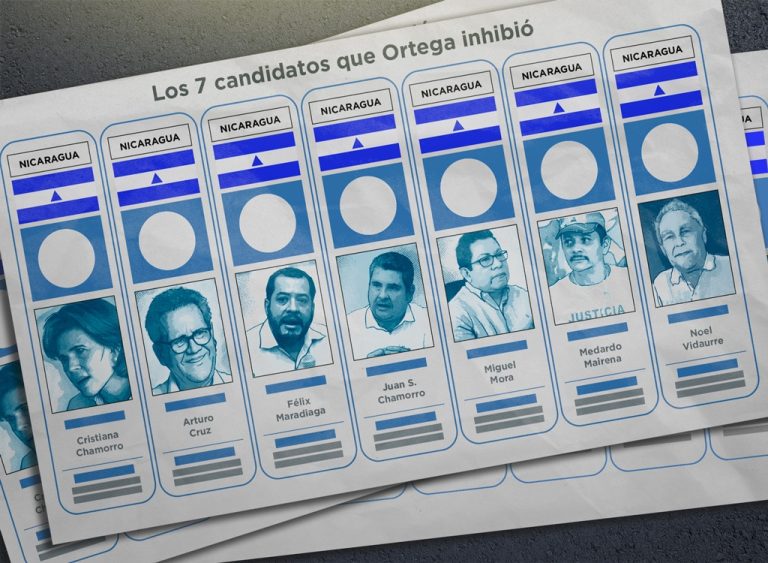
At the start of the electoral process for the elections of November 7, the regime of Daniel Ortega and Rosario Murillo took it upon themselves to sweep away all opposition, in order to cling to power through elections tailored to its needs, imposing de facto single-party voting.
On May 19, the Supreme Electoral Council (CSE), controlled by the ruling Sandinista Front, cancelled the legal status of the Democratic Restoration Party (PRD) and less than three months later, on August 6, annulled Citizens for Liberty (CxL) party.
In the midst of these orders to annul the electoral vehicles of the opposition, it imprisoned 37 politicians, opponents and professionals, among them seven presidential aspiring candidates. More than 110 days later, five of them remain in the cells of El Chipote and two are under house arrest. In addition, two more candidates had to go into exile to avoid arrest.
Those imprisoned are incommunicado, have only received one visit and are still unable to receive food and medicine sent by relatives, despite national and international demands to respect their human rights.
At the end of June, in an interview with the official Russian media Sputnik, the president of the CSE, Mayra Salinas, denied that Nicaragua has imprisoned presidential candidates or pre-candidates. “The CSE does not accept that candidates are imprisoned, because effectively we do not have registered candidates, nor do we have aspiring candidates”, she said.
However, for the opposition, the seven presidential aspirants who will not appear on the ballot, already defeated Daniel Ortega and Rosario Murillo at the polls, by confirming the nullity of a process that demands not to be recognized by the international community.
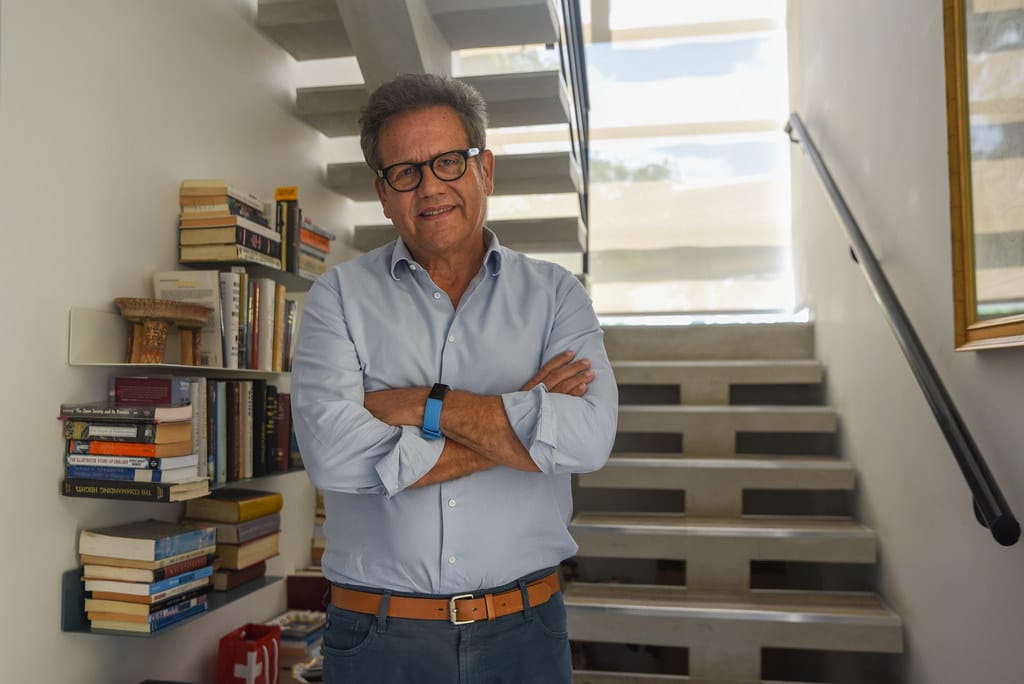
Presidential aspirant Arturo Cruz after an interview in April 2021. Photo: Confidencial
On Saturday, June 5, Cruz was arrested at Managua's Augusto C. Sandino Airport upon his return from the United States, accused of violating the Law for the Defense of the People's Rights to Independence, Sovereignty and Self-Determination for Peace.
The former Nicaraguan ambassador to Washington thus became the first Nicaraguan to be detained under this legislation, which according to lawyers and specialists was created "solely" to inhibit opposition candidates.
A historian and political scientist, Cruz Sequeira is one of the country's most renowned academics. He has been a distinguished professor at the Incae Business School since 1994, has been part of the Western Hemisphere Advisors Group of the Managing Director of the International Monetary Fund (IMF), has a doctorate in History from Oxford University and a master's degree in International Relations from John Hopkins University. He was Nicaragua's ambassador to the United States and Canada between 2007 and 2009, appointed by the Ortega government. He subsequently resigned and returned to academic life, and in 2019 was appointed to the advisory group of the Citizens for Liberty (CxL) party.
Cruz did not formally present his National Plan which, according to his campaign team, would gather “the most pressing demands of society”
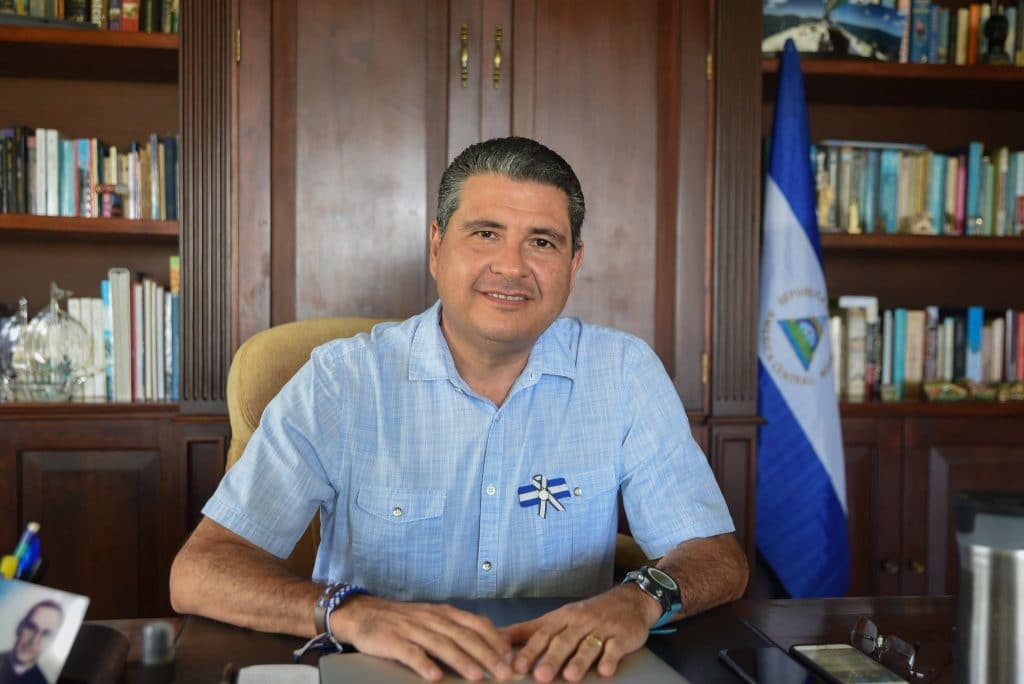
Presidential hopeful Juan Sebastian Chamorro
On June 7, Civic Alliance aspiring candidate, Juan Sebastián Chamorro, shared his indignation regarding the arrests of Arturo Cruz and Cristiana Chamorro, which he described as “illegal and abusive”.
“He wants to immobilize figures who have earned the respect of the majority of Nicaraguans; because Ortega cannot accept that he has lost”, he said.
A day later, on the night of June 8, three police vans arrived to arrest him, breaking down the gates and doors of his house. He received them on his knees and raised his hands, so that they would not beat him or his family members.
After the arrest, he was also accused of violating Law 1055, under which he is attributed “acts that undermine the independence, sovereignty and self-determination of peoples and inciting foreign interference in internal affairs”.
Between 2014 and 2019, Chamorro headed the Nicaraguan Foundation for Economic and Social Development (Funides) and was director of the Cuenta Reto del Milenio in Nicaragua. He served as vice minister of Finance and Public Credit, was technical secretary of the Presidency and director of the National Public Investment System, in the government of Enrique Bolaños.
He was also executive director of the Civic Alliance for Justice and Democracy (ACJD), a position he resigned to run for the presidency.
He presented a government plan called “Nos mueve la esperanza”, meaning hope moves us. The 26-page document proposes “ to have equality before the law as a pillar”, the rule of law, justice, institutionalism and electoral reforms, and economic growth “with social equity and environmental sustainability”.
He holds a B.A. in Economics from the University of San Francisco, an M.A. from Georgetown University and a Ph.D. from the University of Wisconsin.
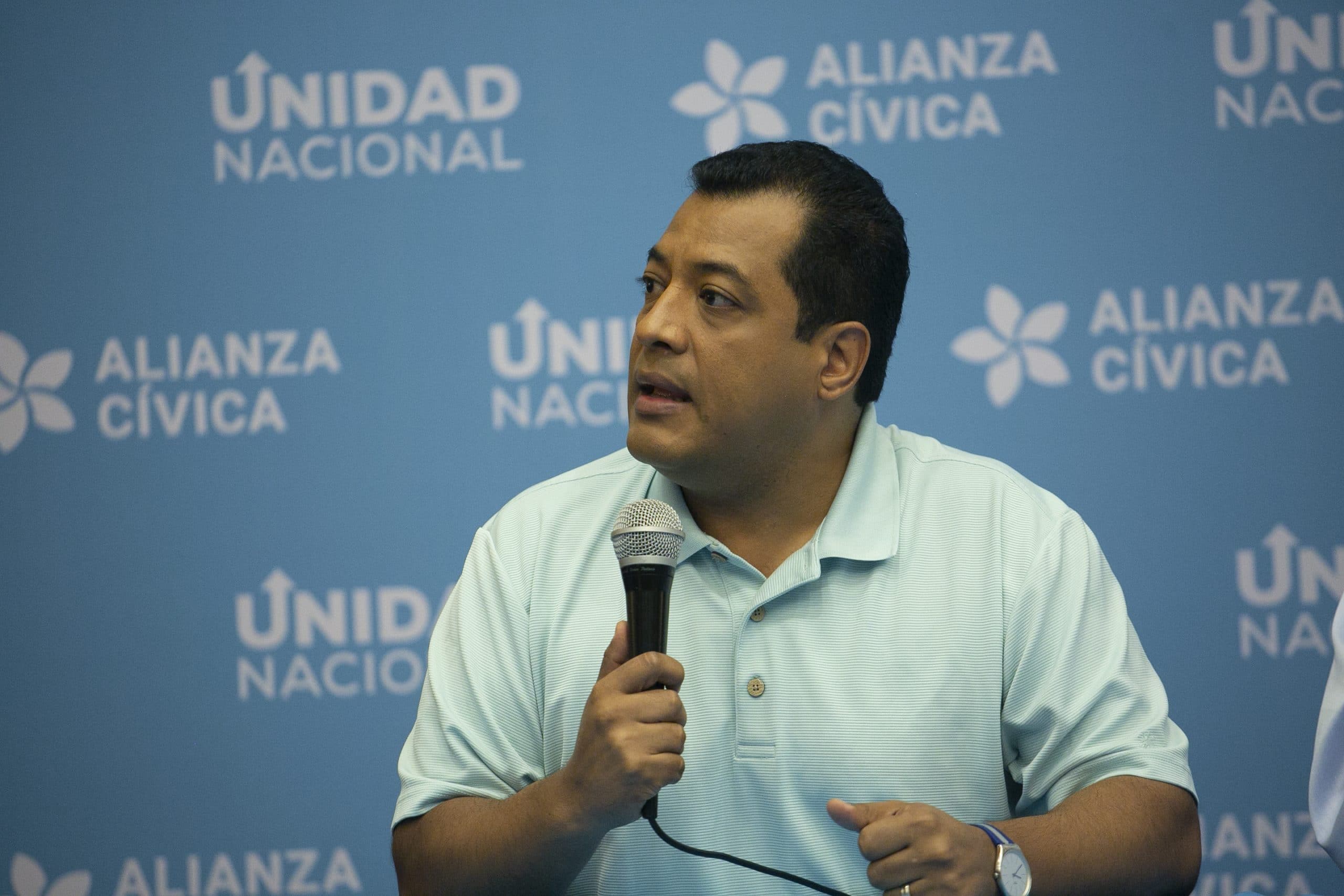
Felix Maradiaga. Photo: Courtesy Jorge Mejía Peralta
The political scientist was involved in the citizen protests of 2018 and was one of the first to confirm his presidential aspiration. However, on the afternoon of Tuesday, June 8, the Ortega police arrested him as he left an extensive interview at the Public Prosecutor's Office.
A policeman violently and aggressively pulled him out of the vehicle and hit him in the face with a closed fist. Minutes later the National Police confirmed his arrest.
Maradiaga is a political scientist, has a degree in Political Science with a Masters in Public Administration from Harvard University and was Secretary General of the Ministry of Defense in the government of Enrique Bolaños. He is a member of the National Blue and White Unity (UNAB) and was director of the Institute for Strategic Studies and Public Policy (Ieepp), closed after the cancellation of its legal status in September 2018.
In September 2019, after almost a year in exile, he returned to Nicaragua and participated in several express protests and sit-ins to challenge the de facto police state.
Upon accepting his presidential candidacy at the UNAB, Maradiaga emphasized “that in Nicaragua there will be no freedom as long as there are political prisoners. Nicaragua is a prison and we will only have freedom when we get rid of Ortega”.
He also presented his government plan, remarking that justice had to be achieved “without soft landings” and not allowing oblivion.
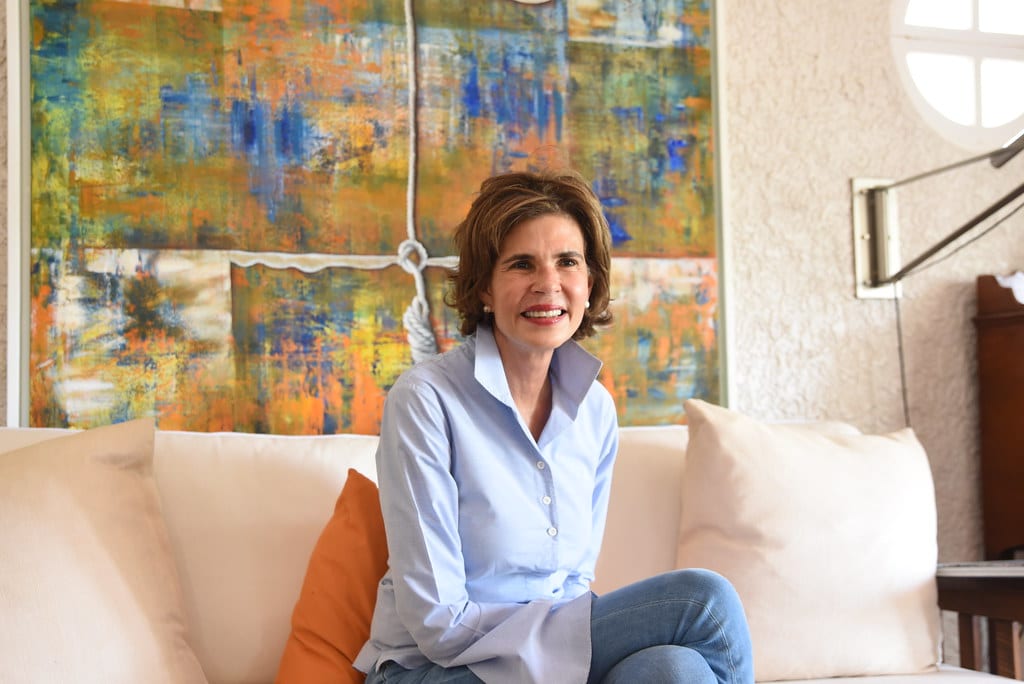
Cristiana Chamorro Barrios. Photo: Confidential
Cristiana Chamorro Barrios was the only presidential aspirant who did not belong to any of the opposition groups, but stood out in the political sympathy polls.
She assured that her nomination was given to her by “the people” who placed her name in the polls, and insisted on the need for a true opposition unity to defeat Ortega, as her mother, Violeta Barrios de Chamorro, did in the 1990 elections.
In a few months she went from not doing politics to becoming the most visible face of the opposition. On the night of May 21, Chamorro Barrios denounced the kidnapping of Walter Gómez and Marcos Fletes, former workers of the Violeta Barrios de Chamorro Foundation (FVBCh), of which she was president, and against which the regime fabricated an accusation of alleged money laundering.
Twelve days later, after a search that lasted more than five hours, Ortega's judge Karen Chavarría ordered her arrest and her house arrest was confirmed.
Chamorro was accused "for the crimes of abusive management and ideological falsehood, both in real concurrence with money laundering, goods and assets" through the extinct Foundation, to inhibit her de facto. The perimeter of her house remains surrounded by officers of the Directorate of Special Operations (DOEP).
Since 1998, Chamorro has been dedicated to the defense of freedom of expression and the promotion of democracy from her positions as director and president of the FVBCh. She is also vice-president of La Prensa newspaper.
She graduated in History and Philosophy from UCA and received a Master's degree in Latin American History and Literature from Ohio University. Between 1987 and 1993 she was deputy editor of La Prensa, a newspaper where she has also been a columnist.
In confirming her presidential aspiration, she invoked the democratic legacy of her mother and father Pedro Joaquín Chamorro Cardenal, martyr of Public Freedoms and national hero, with “nine pillars of democracy” that include “freedom of expression, free elections, no presidential reelection, respect for human rights, sustainable economic development, rule of law with separation of powers”.
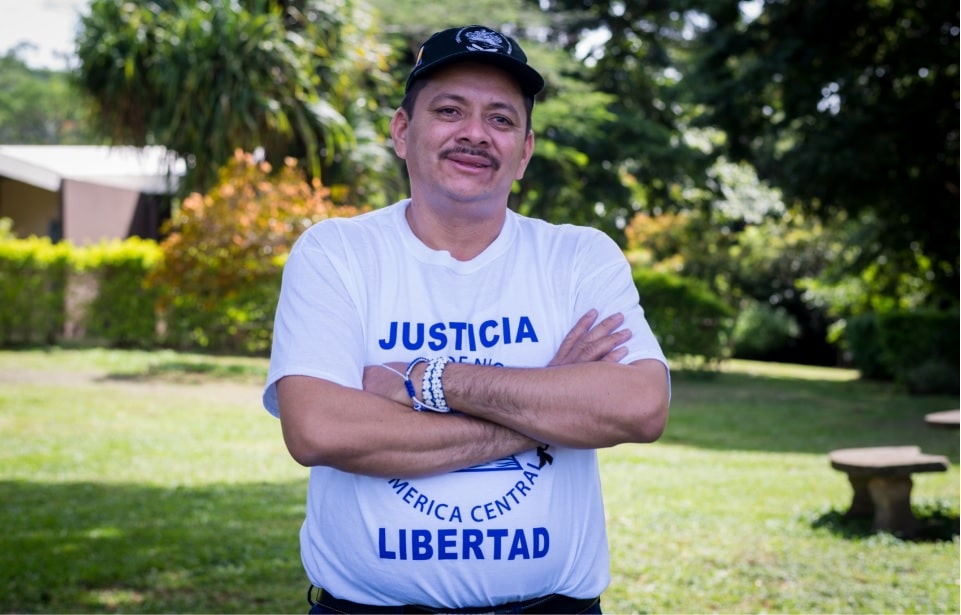
On June 7, Civic Alliance aspiring candidate, Juan Sebastián Chamorro, shared his indignation regarding the arrests of Arturo Cruz and Cristiana Chamorro, which he described as “illegal and abusive”.
“He wants to immobilize figures who have earned the respect of the majority of Nicaraguans; because Ortega cannot accept that he has lost”, he said.
A day later, on the night of June 8, three police vans arrived to arrest him, breaking down the gates and doors of his house. He received them on his knees and raised his hands, so that they would not beat him or his family members.
After the arrest, he was also accused of violating Law 1055, under which he is attributed “acts that undermine the independence, sovereignty and self-determination of peoples and inciting foreign interference in internal affairs”.
Between 2014 and 2019, Chamorro headed the Nicaraguan Foundation for Economic and Social Development (Funides) and was director of the Cuenta Reto del Milenio in Nicaragua. He served as vice minister of Finance and Public Credit, was technical secretary of the Presidency and director of the National Public Investment System, in the government of Enrique Bolaños.
He was also executive director of the Civic Alliance for Justice and Democracy (ACJD), a position he resigned to run for the presidency.
He presented a government plan called “Nos mueve la esperanza”, meaning hope moves us. The 26-page document proposes “ to have equality before the law as a pillar”, the rule of law, justice, institutionalism and electoral reforms, and economic growth “with social equity and environmental sustainability”.
He holds a B.A. in Economics from the University of San Francisco, an M.A. from Georgetown University and a Ph.D. from the University of Wisconsin.
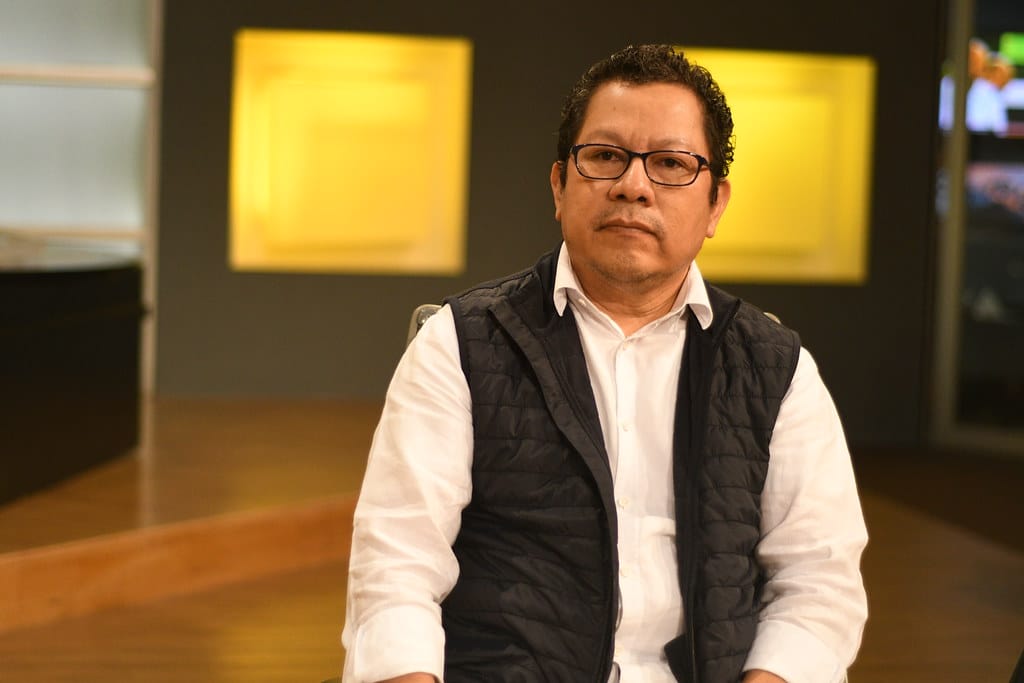
Miguel Mora. // Photo: Archive | Confidencial
The Ortega Prosecutor's Office bases its accusation against the journalist and pre-candidate of the Democratic Restoration Party (PRD), Miguel Mora, on the testimony of four policemen, messages he published in his social networks and an interview to a media outlet.
On the night of Sunday, June 20, the Police recaptured him, with the argument of an “investigation” for the alleged violation of Law 1055, which has been applied to “criminalize” opponents.
Mora was imprisoned for the first time in 2018, accused of inciting hatred after denouncing the Ortega repression. The facilities of news organization Canal 100% Noticias, of which he is the owner, were confiscated on December 21, 2018, and a group of riot police kidnapped him along with journalist Lucía Pineda Ubau, and both suffered imprisonment in degrading conditions.
“They bury you alive to disrupt you morally, to break you, so that your thinking and principles change in favor of them,” he expressed in an interview with Esta Semana, after being released from prison in June 2019.
Mora studied journalism at the Universidad Centroamericana (UCA) and began an internship in television in 1991. In 1995 he started his 100% Noticias project as a 15-minute news program on the state channel. He went around renting spaces until he founded his own cable channel.
He stated that more than one hundred specialists worked on the construction of a national plan, which would be evaluated by the National Coalition, which the PRD was part of. Its main promise was to “restore democracy” and create “strategic plans to control the cost of living, fuels and state management”.
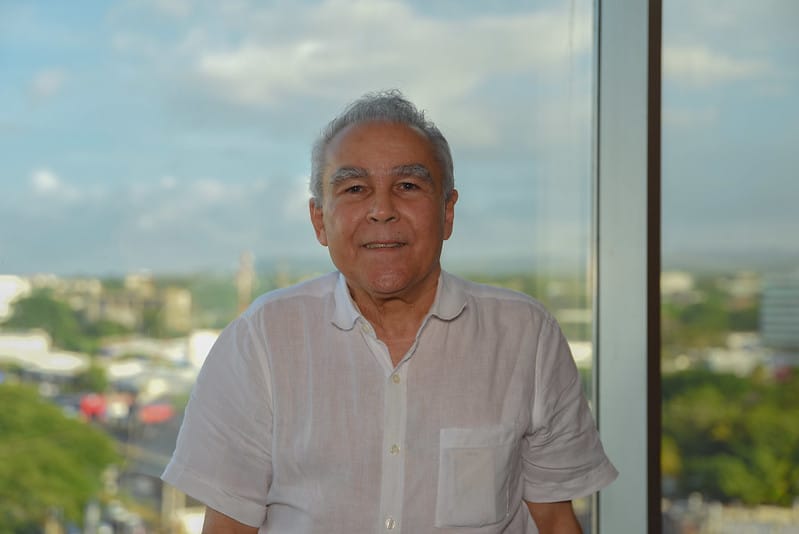
Noel Vidaurre, presidential candidate of the Citizens for Freedom Alliance. Photo: Confidential.
For the third time, Vidaurre, 66, had presidential aspirations. He was previously a candidate for the Conservative Party in 1996, and in 2001 he declined a presidential candidacy so as not to divide the voters and “so that Daniel Ortega would not win”, in the elections in which former President Enrique Bolaños triumphed as the PLC candidate.
On Saturday, July 24, two hours after appearing before the Public Prosecutor's Office, the Police announced that they were imposing house arrest on him, arguing an alleged investigation and violation of Law 1055 or “Sovereignty Law”.
According to the police statement, he had allegedly carried out “acts that undermine independence, sovereignty and self-determination” but did not provide specific information about such acts. After an interrogation at the Prosecutor's Office, Vidaurre stated that he was not given any reason as to why he was summoned, only that it was due to comments he had made to the media.
Vidaurre insisted that voting was the only way out of the dictatorship, despite the distrust in the electoral system and the imprisonment of presidential aspirants.
He studied law at the Pontificia Universidad Católica de Chile. He studied Macroeconomics at the University of Colorado and has a Master's degree in Banking and Finance at the Instituto Centroamericano de Administración de Empresas (Incae) in San José, Costa Rica.
He was Vice Minister of Foreign Affairs and Vice Minister of Economy in the government of President Violeta Barrios de Chamorro.
“I left the country, I was under a lot of pressure and I decided it was better to leave Nicaragua, I went into exile. There were threats from the dictatorship to arrest me, a lot of pressure from my friends and family to leave Nicaragua”, Luis Fley, president of the opposition Nicaraguan Democratic Force (FDN) and presidential aspiring candidate, currently exiled in the United States, declared on July 12.
Fley announced his interest in being a candidate for the presidency on behalf of the FDN in the National Coalition (CN) on February 12 and after the cancellation of the PRD decided to register in the candidate selection process of the Citizens for Liberty Alliance on May 31, and resigned weeks later.
Dr. Maria Asuncion Moreno, an expert in criminal law, was also forced into exile. Less than 24 hours after it was disclosed that the Civic Alliance for Justice and Democracy would present her as presidential aspiring candidate to the Citizens Alliance for Liberty (ACxL), the Public Prosecutor's Office summoned her for an interview, without detailing the reasons.
On July 25, the lawyer confirmed her exile in the face of the threat of imprisonment, after the Public Prosecutor's Office requested the raid of her home, where her vehicle was stolen.
She wrote on twitter: “In the face of harassment, persecution and the threat of my imprisonment by the Ortega Murillo dictatorship, I have decided to leave the country, I believe that from the hard exile. I will be able to contribute more than from the isolation and incommunicado detention, to which our political prisoners are subjected”.
This article was originally published in Spanish in Confidencial and translated by our staff
Archivado como:
PUBLICIDAD 3M
Confidencial es un diario digital nicaragüense, de formato multimedia, fundado por Carlos F. Chamorro en junio de 1996. Inició como un semanario impreso y hoy es un medio de referencia regional con información, análisis, entrevistas, perfiles, reportajes e investigaciones sobre Nicaragua, informando desde el exilio por la persecución política de la dictadura de Daniel Ortega y Rosario Murillo.
PUBLICIDAD 3D